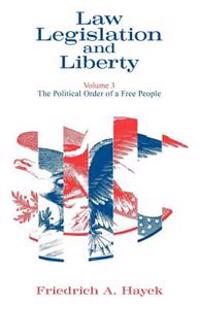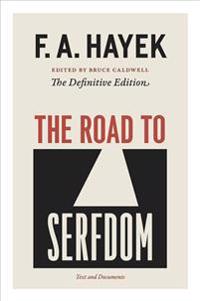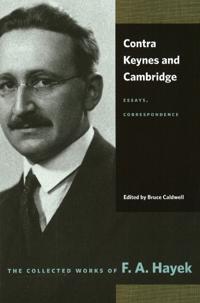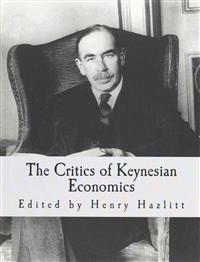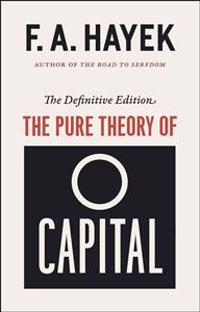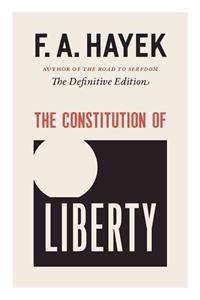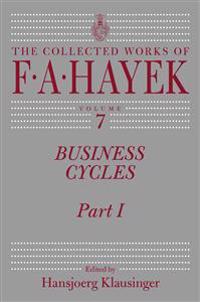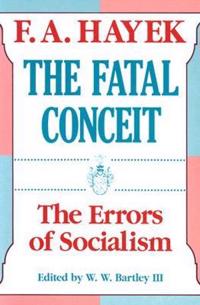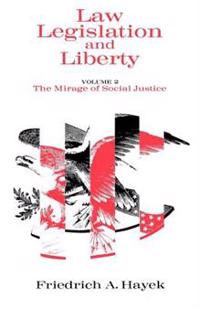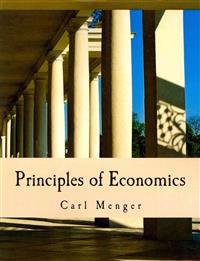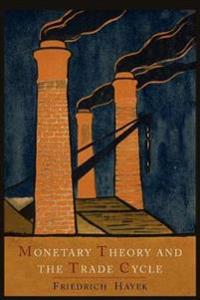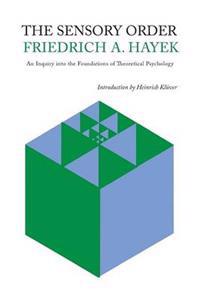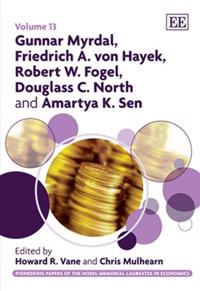Law, Legislation and Liberty, Volume 3: The Political Order of a Free People (Häftad)
avFriedrich A. Von Hayek
ISBN: 9780226320908 - UTGIVEN: 198103Incisive, straightforward, and eloquent, this third and concluding volume of F. A. Hayek's comprehensive assessment of the basic political principles which order and sustain free societies contains the clearest and most uncompromising exposition of the political philosophy of one of the world's fore[...]
The Road to Serfdom (Pocket)
avFriedrich A. Von Hayek, Bruce Caldwell, Friedrich A. Von Hayek
ISBN: 9780226320557 - UTGIVEN: 200703An unimpeachable classic work in political philosophy, intellectual and cultural history, and economics, "The Road to Serfdom" has inspired and infuriated politicians, scholars, and general readers for half a century. Originally published in 1944 - when Eleanor Roosevelt supported the efforts of Sta[...]
Contra Keynes and Cambridge (Pocket)
avFriedrich A. Von Hayek, Bruce (EDT) Caldwell, Friedrich A. Von Hayek
ISBN: 9780865977440 - UTGIVEN: 2009-04"Contra Keynes & Cambridge" is composed of three parts: Part I consists of two essays, the first being a recollection by Hayek of his time at the London School of Economics in the 1930s, followed by his contribution to an early debate about the paradox of saving. Part II reprints the full debates be[...]
The Critics of Keynesian Economics (Häftad)
avHenry Hazlitt, Ludwig Von Mises, Friedrich A. Von Hayek
ISBN: 9781493700486 - UTGIVEN: 2013-11The Pure Theory of Capital, the Definitive Edition (Häftad)
avFriedrich A. Von Hayek, Lawrence H. White
ISBN: 9780226215587 - UTGIVEN: 2014-10"The Pure Theory of Capital," F. A. Hayek's long-overlooked, little-understood volume, was his most detailed work in economic theory. Originally published in 1941 when fashionable economic thought had shifted to John Maynard Keynes, Hayek's manifesto of capital theory is now available again for toda[...]
The Constitution of Liberty: The Definitive Edition (Häftad)
avFriedrich A. Von Hayek, Ronald Hamowy
ISBN: 9780226315393 - UTGIVEN: 201104Business Cycles: Part I (Inbunden)
avFriedrich A. Von Hayek, Hansjoerg Klausinger
ISBN: 9780226320441 - UTGIVEN: 201208In the years following its publication, F. A. Hayek's pioneering work on business cycles was regarded as an important challenge to what was later known as Keynesian macroeconomics. Today, as debates rage on over the monetary origins of the current economic and financial crisis, economists are once a[...]
The Fatal Conceit (Pocket)
avFriedrich A. Von Hayek
ISBN: 9780226320663 - UTGIVEN: 199108Hayek gives the main arguments for the free-market case and presents his manifesto on the "errors of socialism." Hayek argues that socialism has, from its origins, been mistaken on factual, and even on logical, grounds and that its repeated failures in the many different practical applications of so[...]
Law, Legislation and Liberty, Volume 2: The Mirage of Social Justice (Häftad)
avFriedrich A. Von Hayek
ISBN: 9780226320830 - UTGIVEN: 197810Claiming that predominant models of liberal democratic institutions inevitably produce totalitarian systems, the author describes and compares the laws that typify spontaneous and directed orders of social organization.[...]
The Fatal Conceit: The Errors of Socialism (CD-bok)
avFriedrich A. Von Hayek, W. W. Bartley, Everett Sherman
ISBN: 9781469298160 - UTGIVEN: 2013-04Nobel laureate F. A. Hayek gives the main arguments for the free-market case and presents his manifesto on the ?errors of socialism.? Hayek argues that socialism has, from its origins, been mistaken on factual, and even on logical grounds and that its repeated failures in the many different practica[...]
The Fatal Conceit: The Errors of Socialism (Övrigt)
avFriedrich A. Von Hayek, W. W. Bartley, Everett Sherman
ISBN: 9781469298764 - UTGIVEN: 2013-04Nobel laureate F. A. Hayek gives the main arguments for the free-market case and presents his manifesto on the ?errors of socialism.? Hayek argues that socialism has, from its origins, been mistaken on factual, and even on logical grounds and that its repeated failures in the many different practica[...]
Principles of Economics (Häftad)
avCarl Menger, Friedrich A. Von Hayek, Peter G. Klein
ISBN: 9781479210213 - UTGIVEN: 2007-01Monetary Theory and the Trade Cycle (Häftad)
avFriedrich A Von Hayek
ISBN: 9781614273271 - UTGIVEN: 2012-07Gunnar Myrdal, Friedrich A. von Hayek, Robert W. Fogel, Douglass C. North and Amartya K. Sen
ISBN: 9781849804011 - UTGIVEN: 2011-11This groundbreaking series brings together a critical selection of key papers by the Nobel Memorial Laureates in Economics that have helped shape the development and present state of economics. The editors have organised this comprehensive series by theme and each volume focuses on those Laureates w[...]

